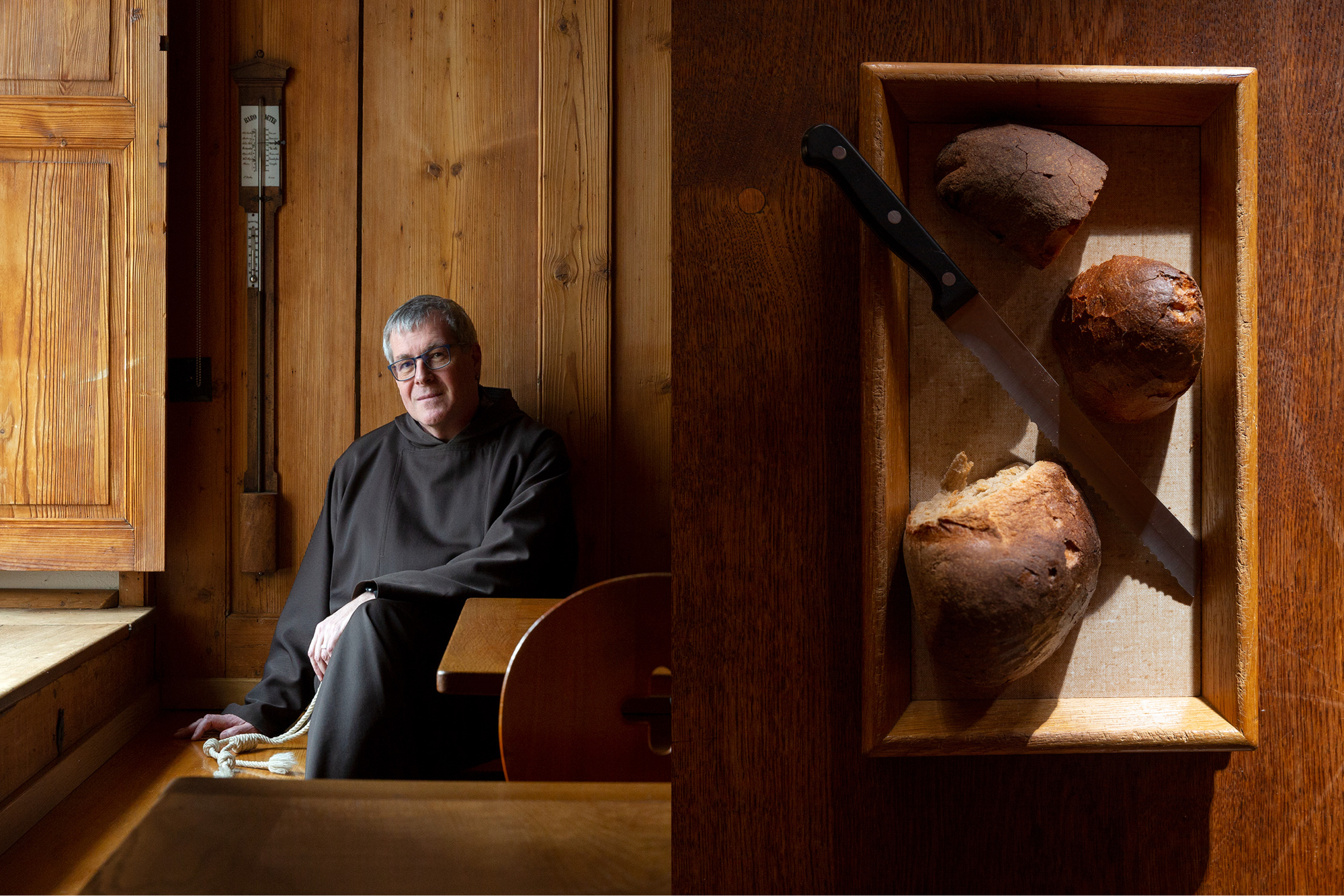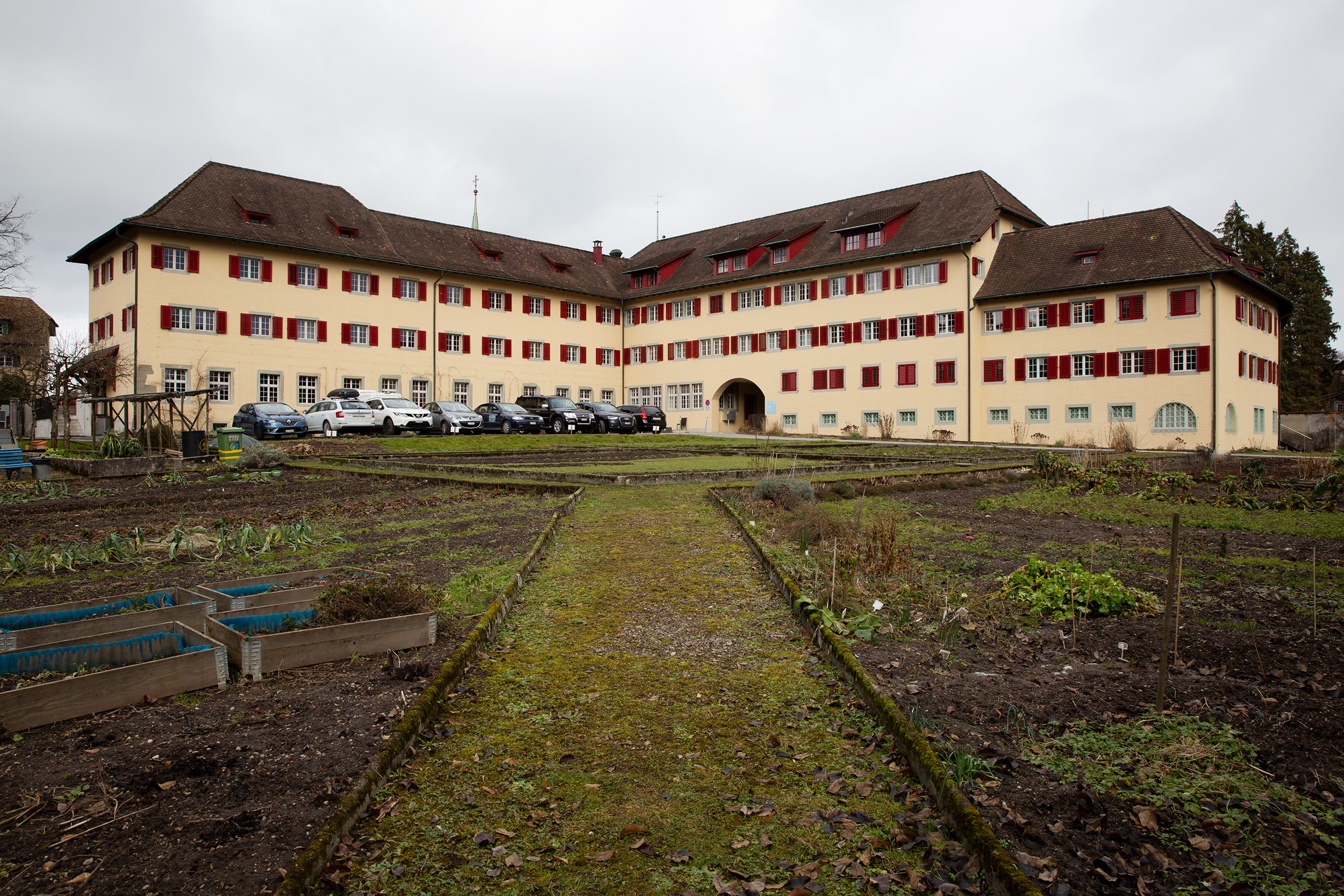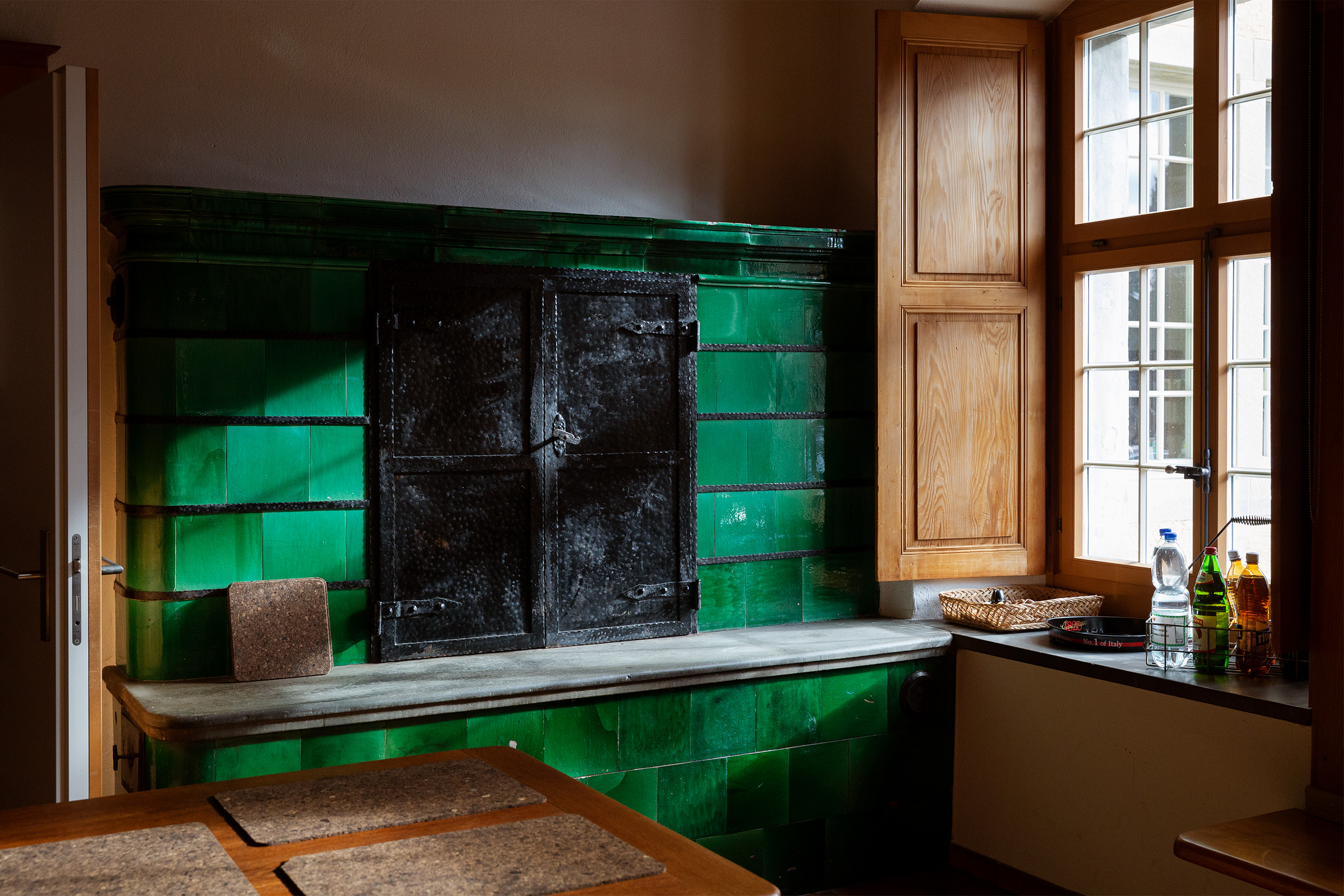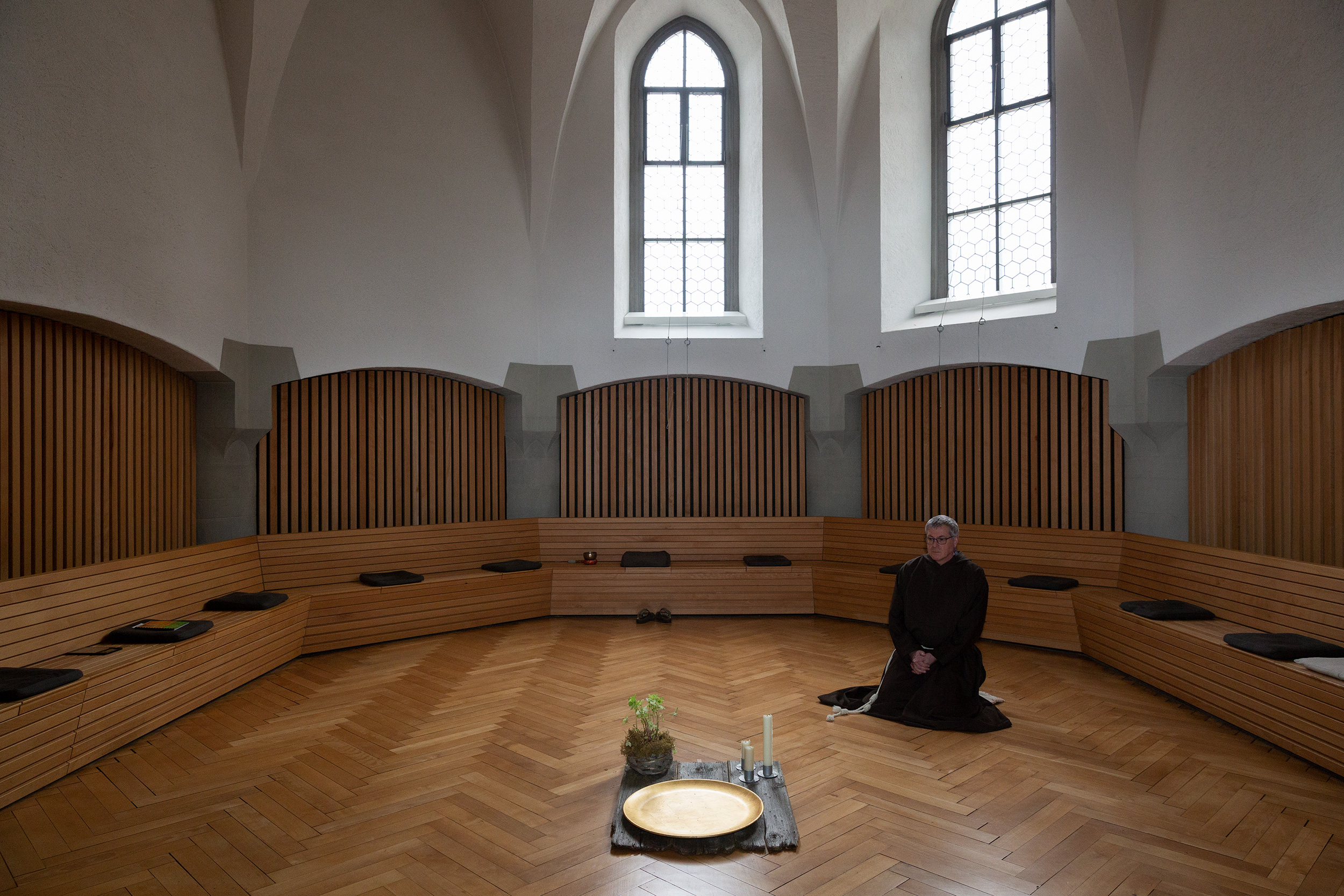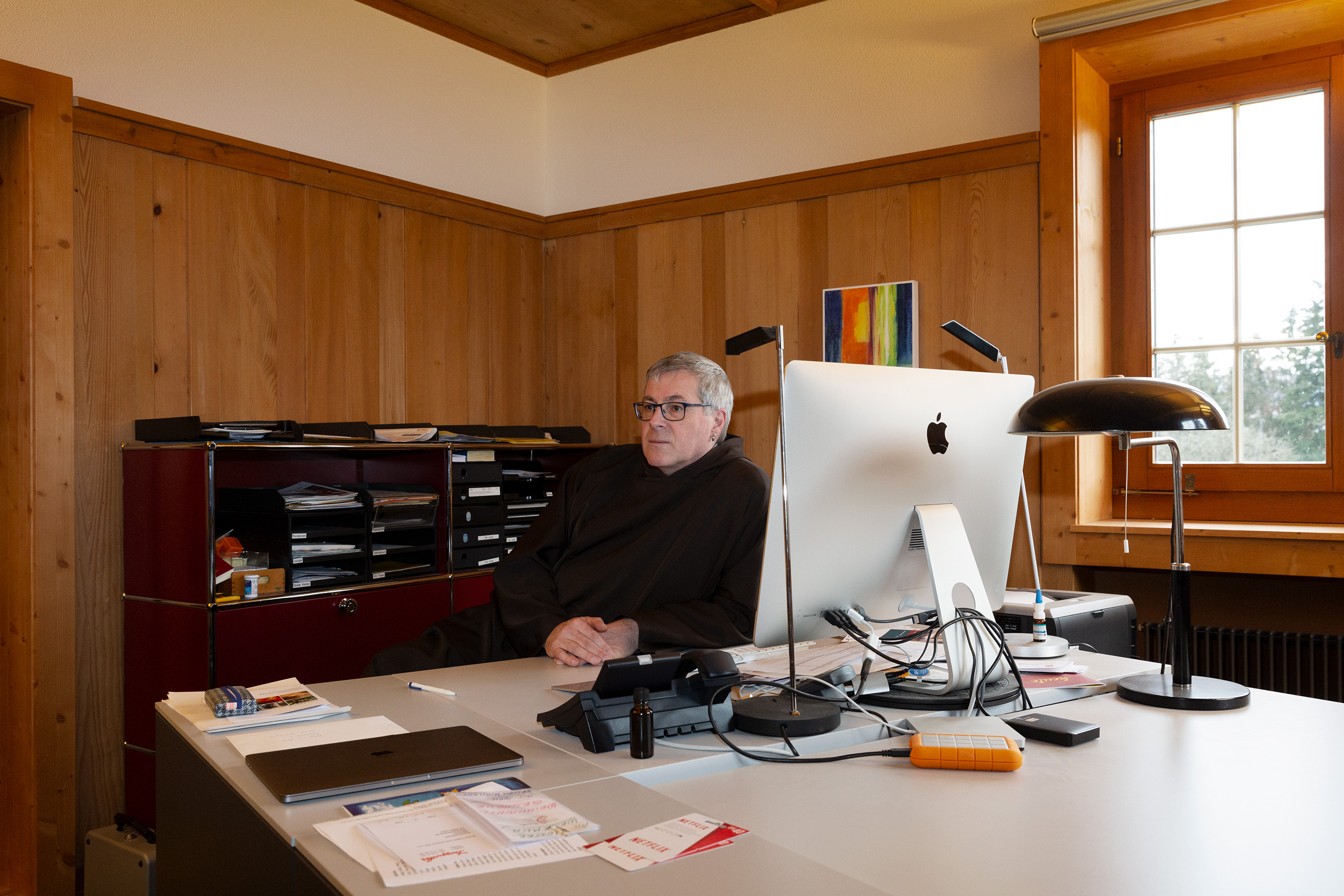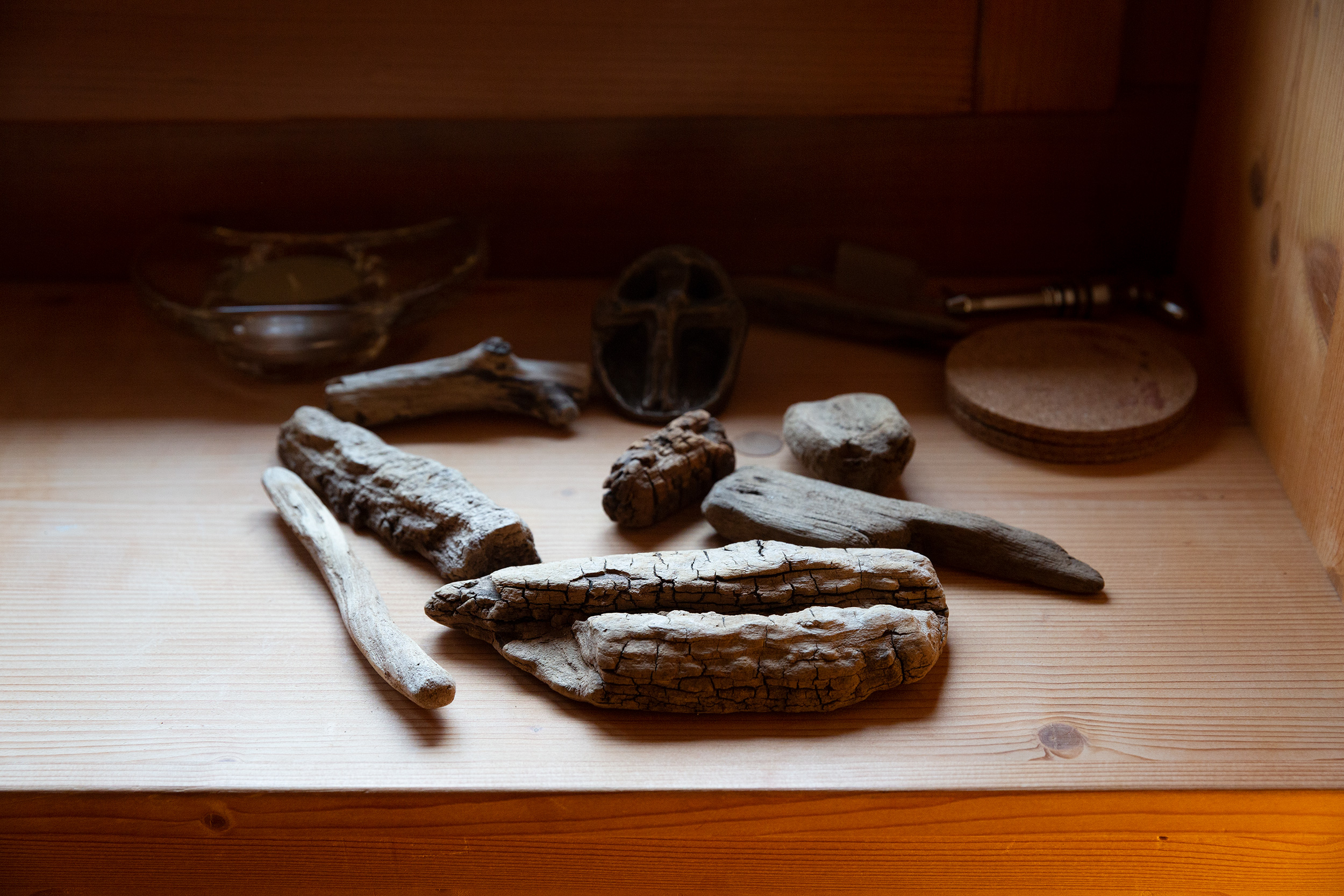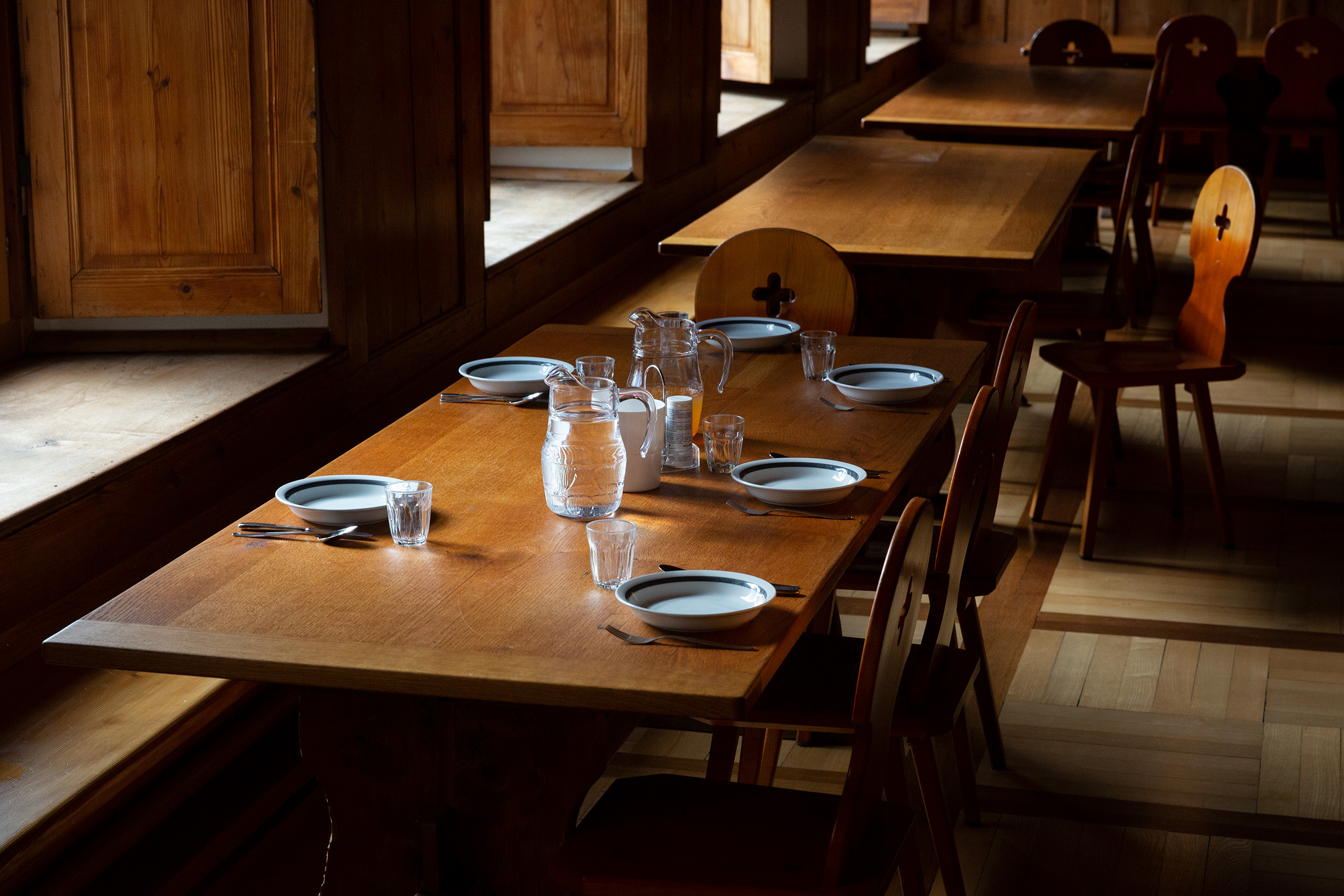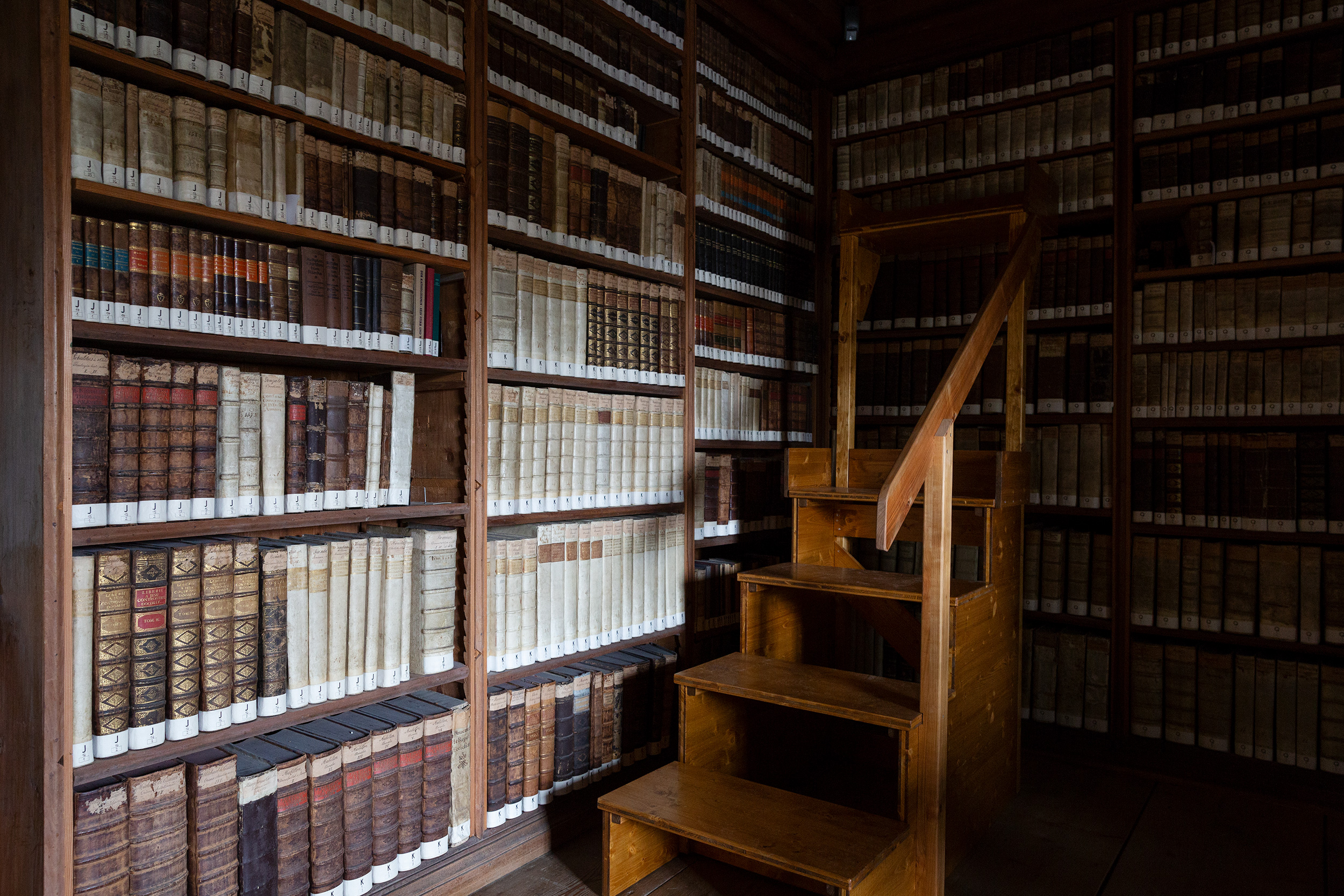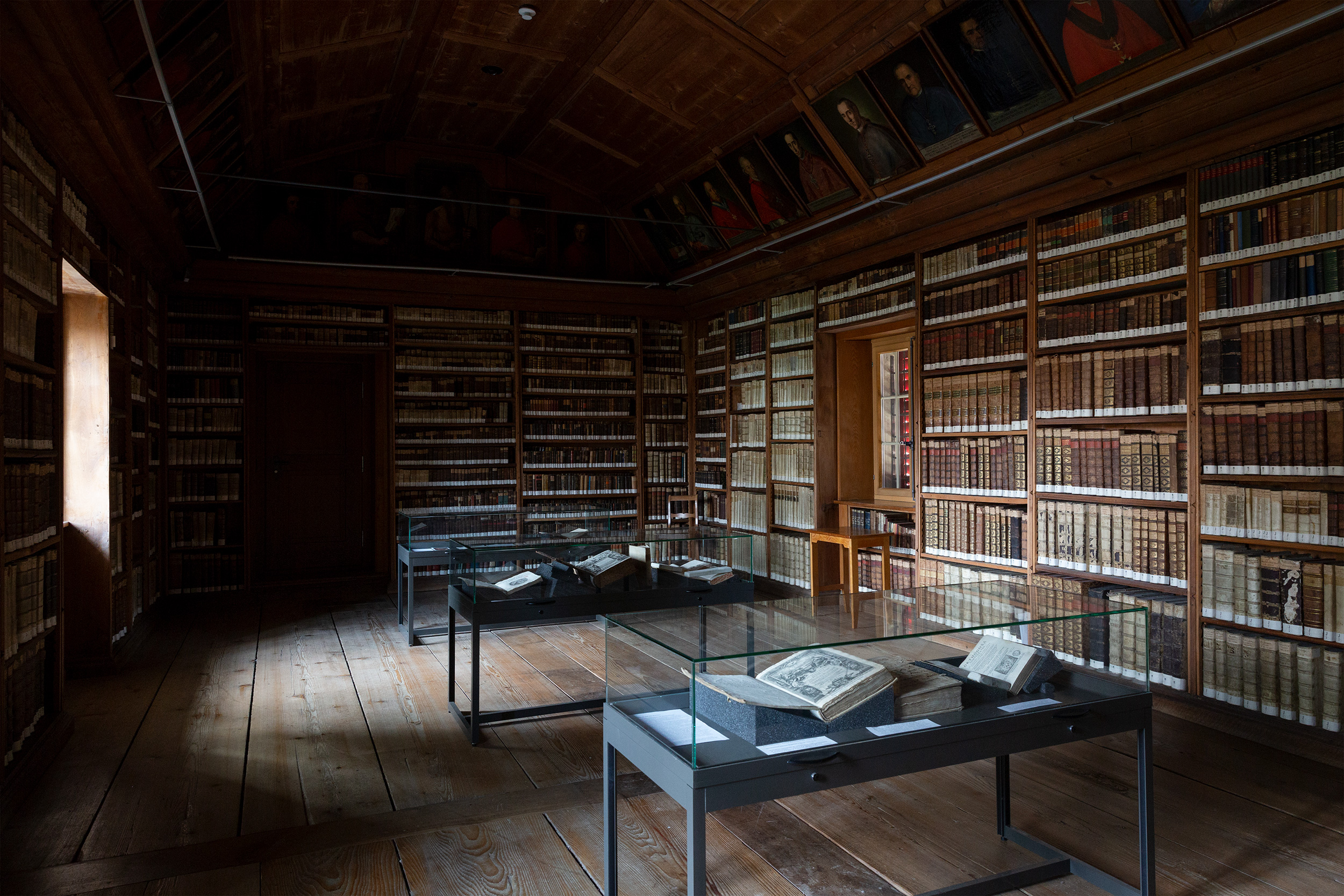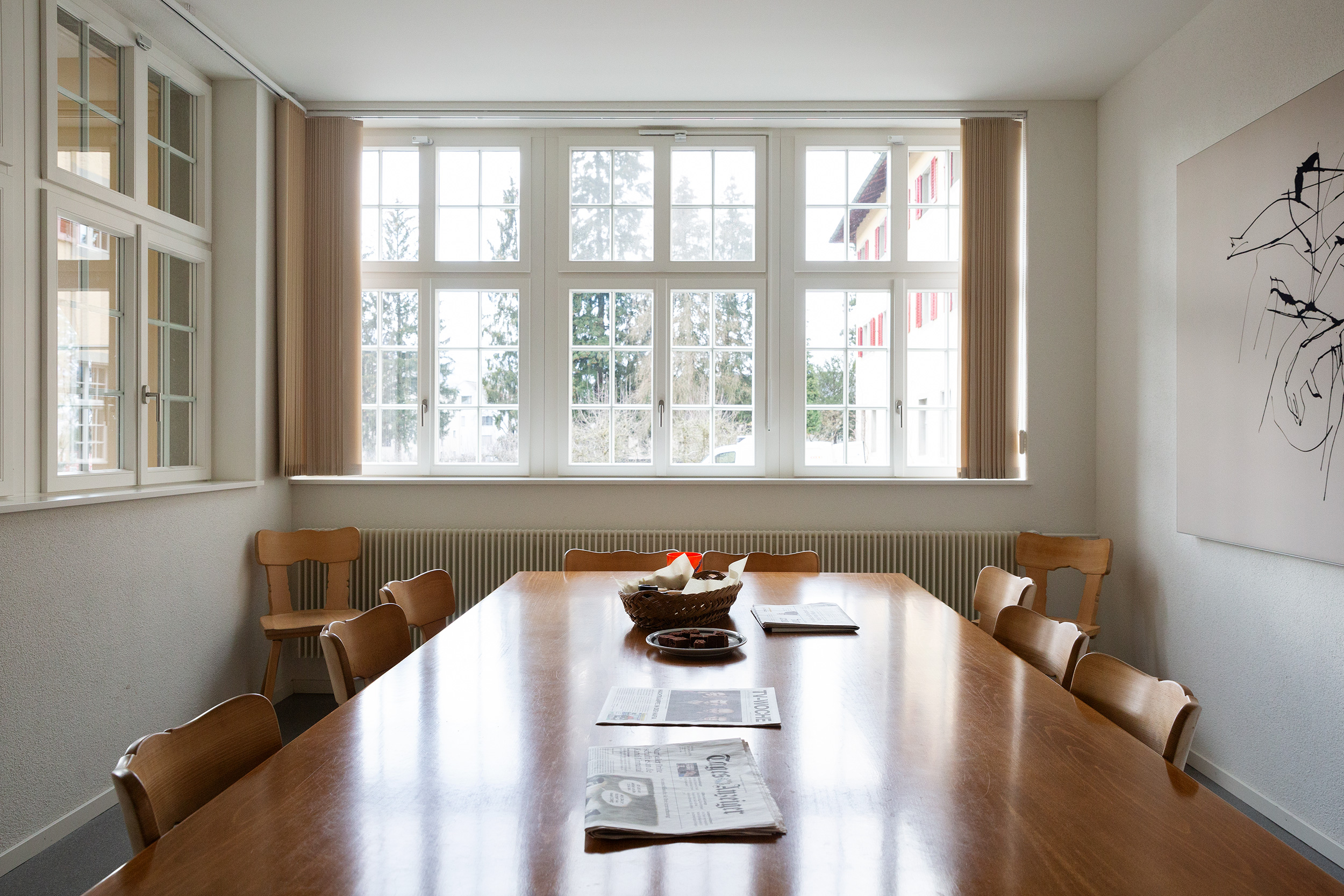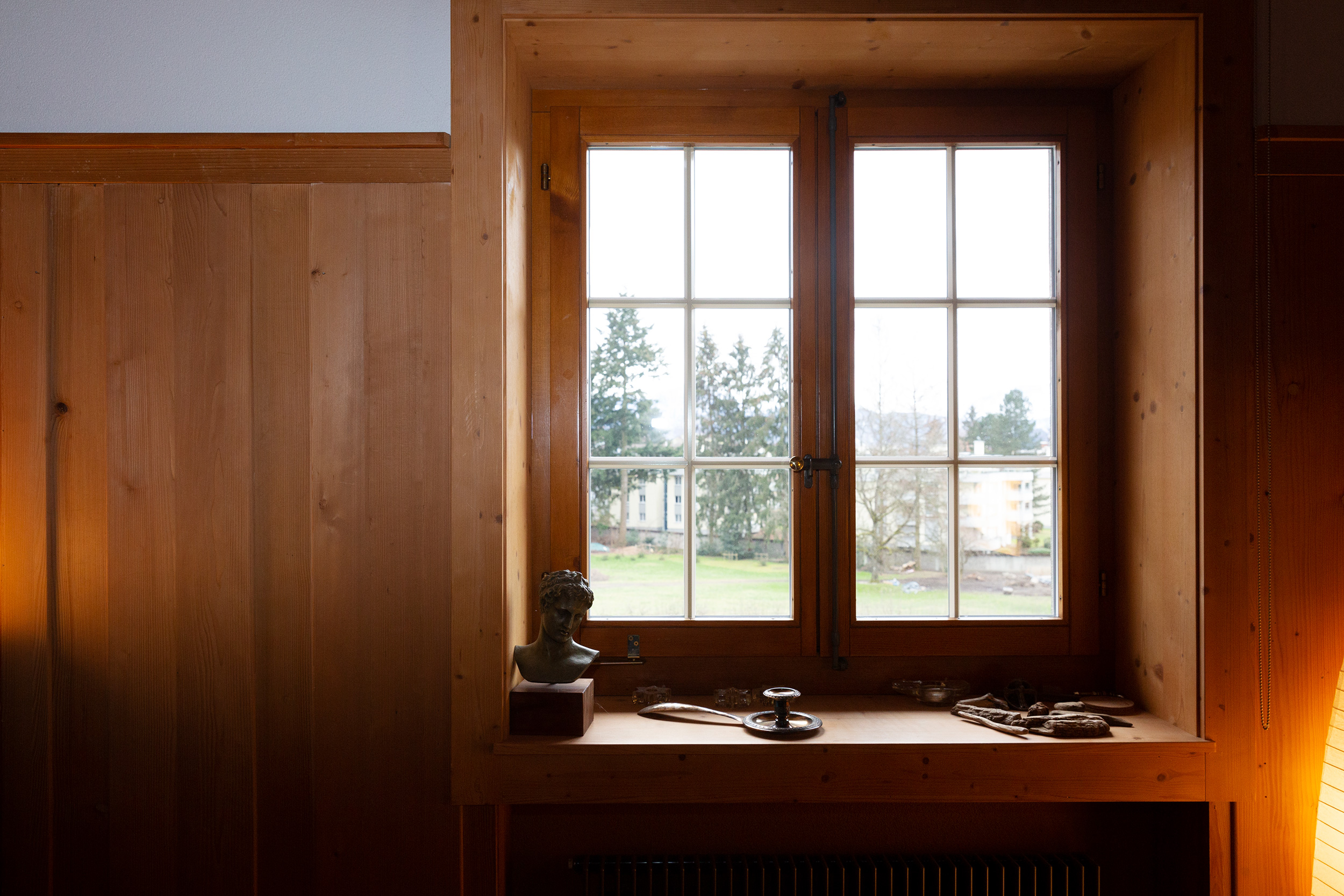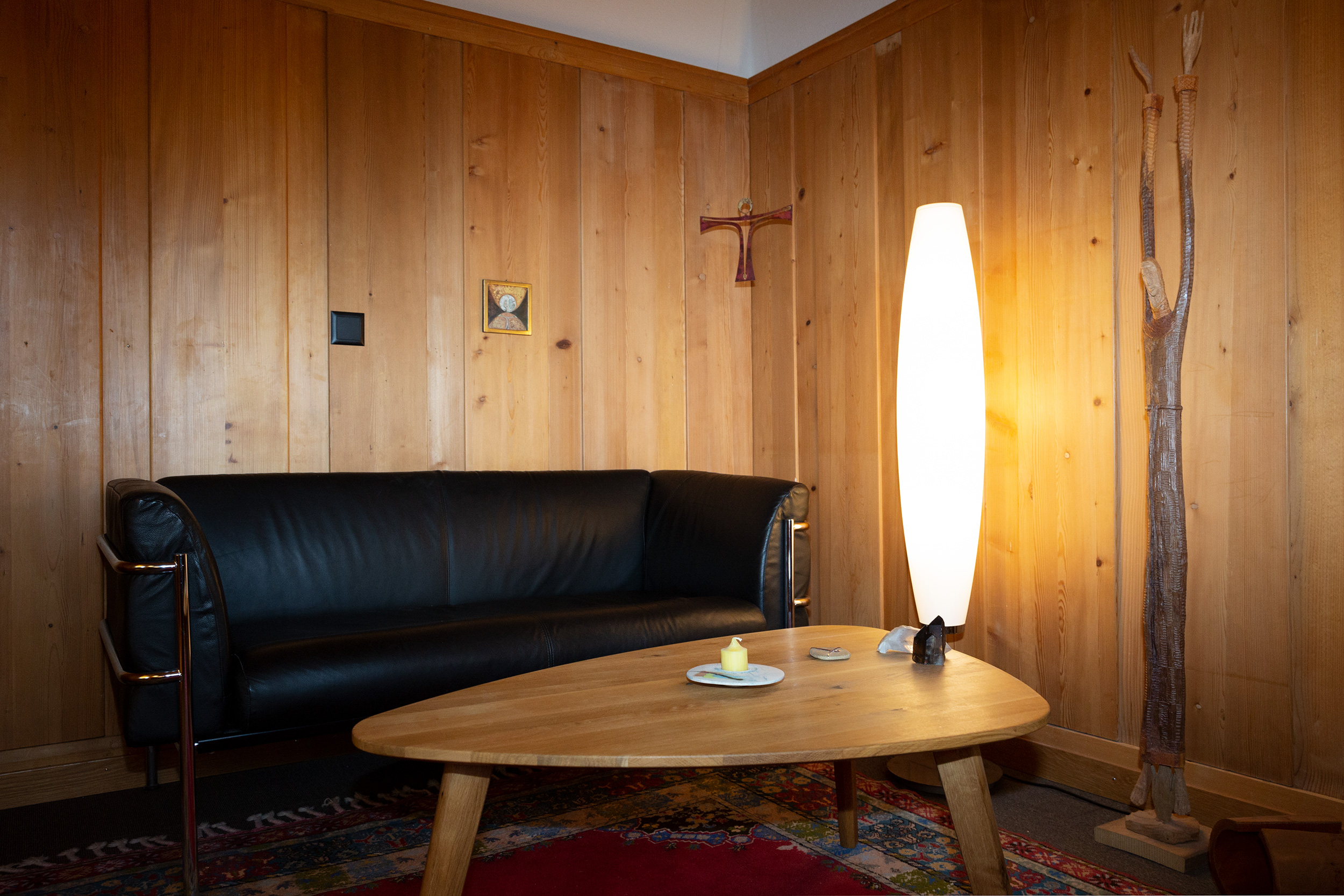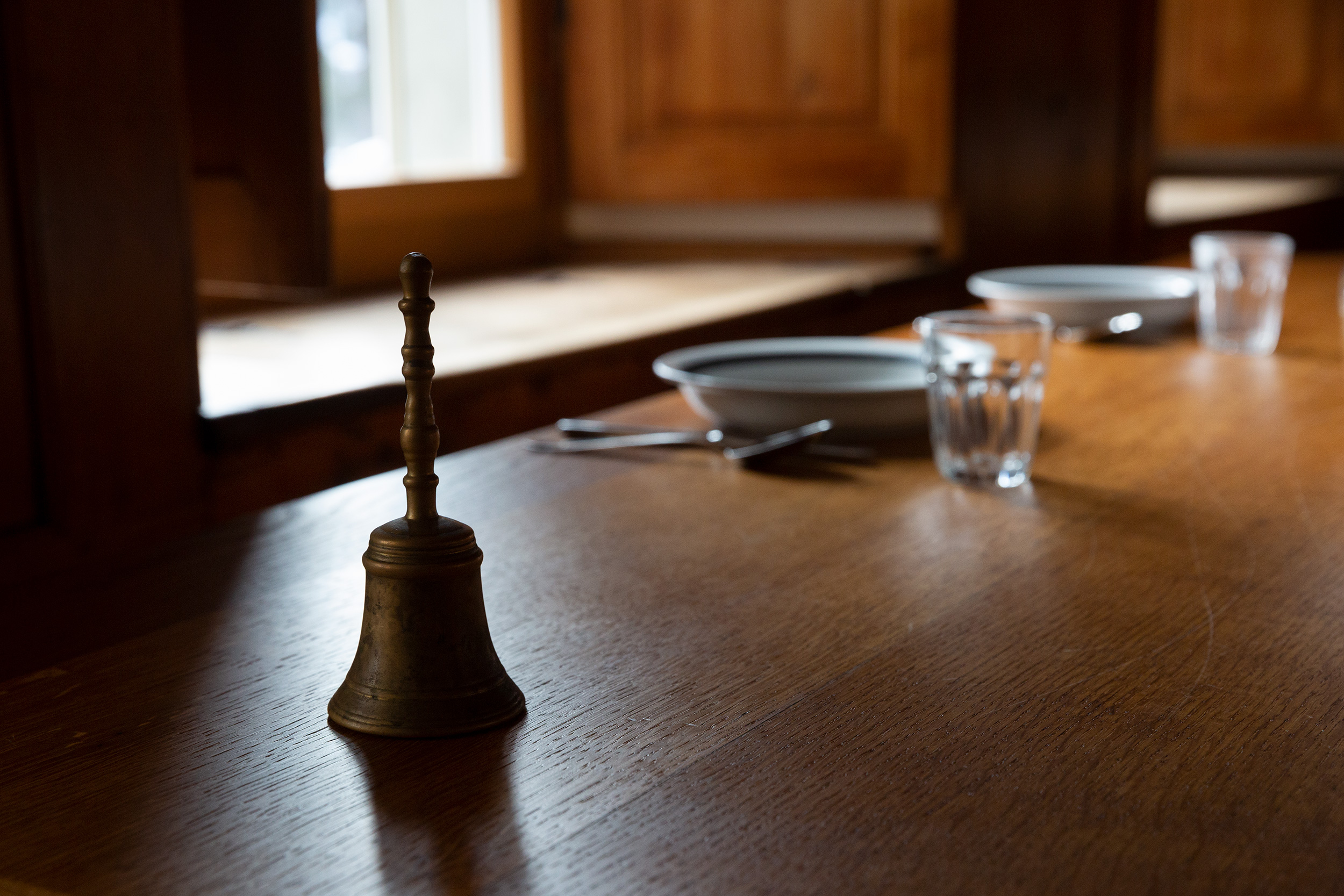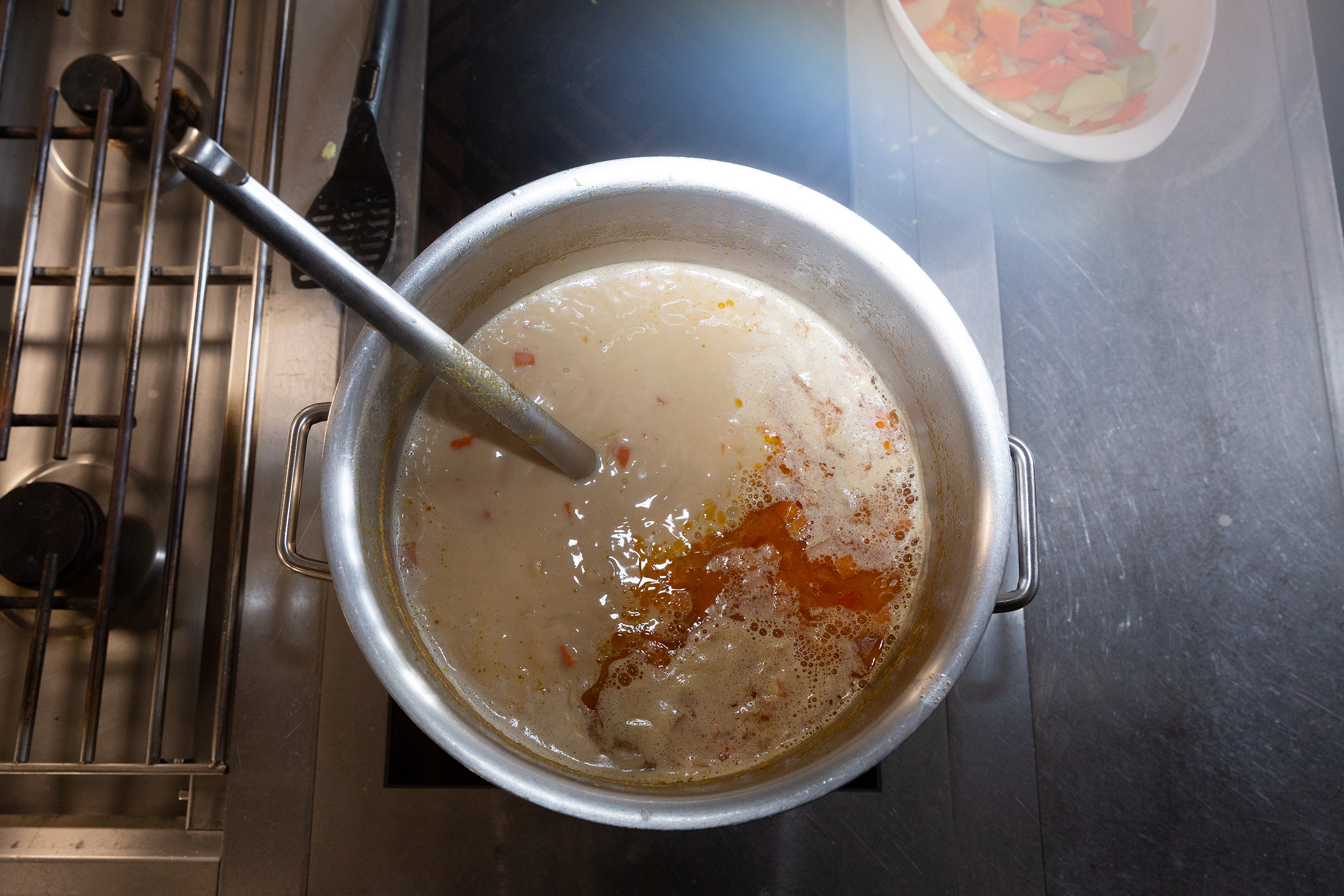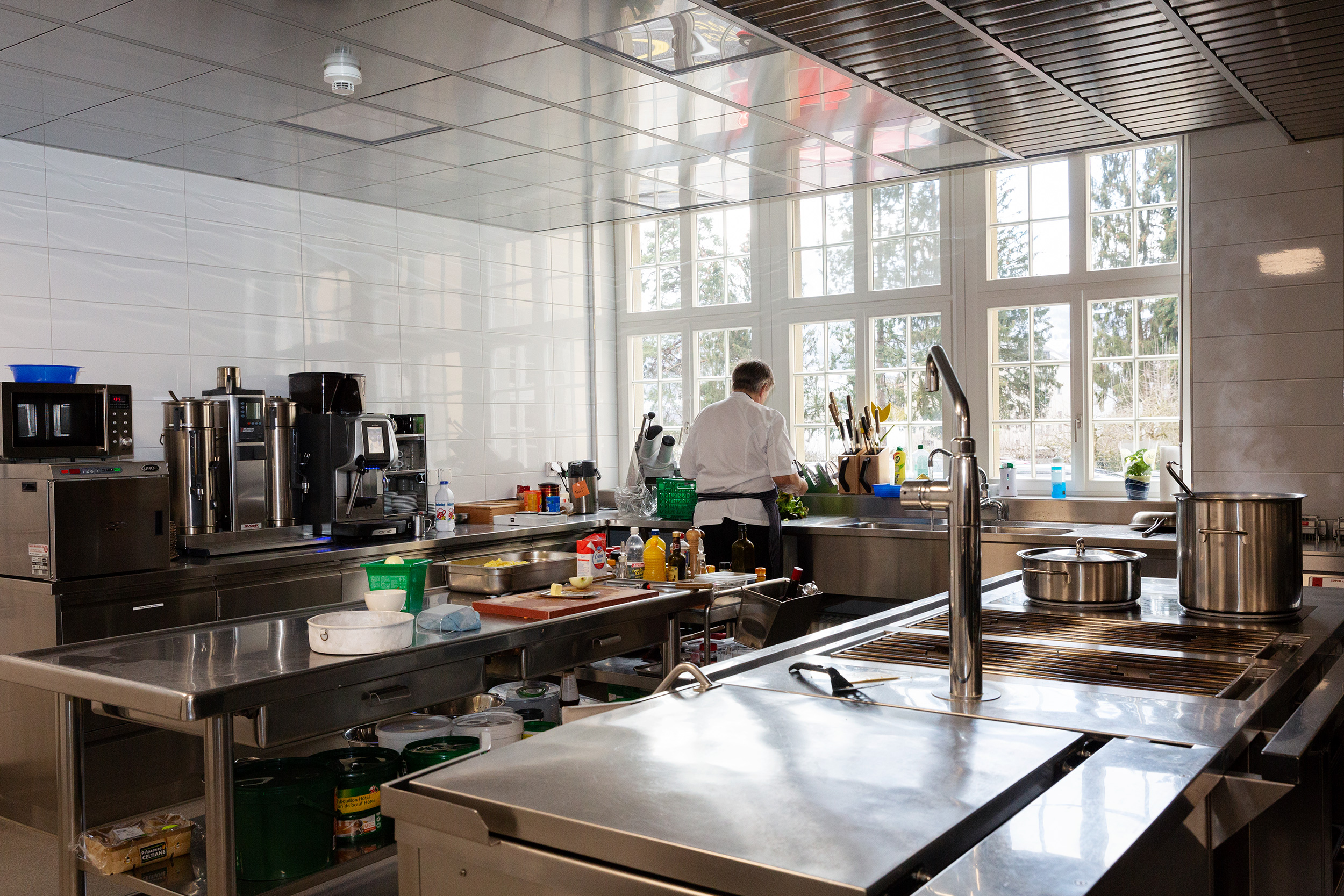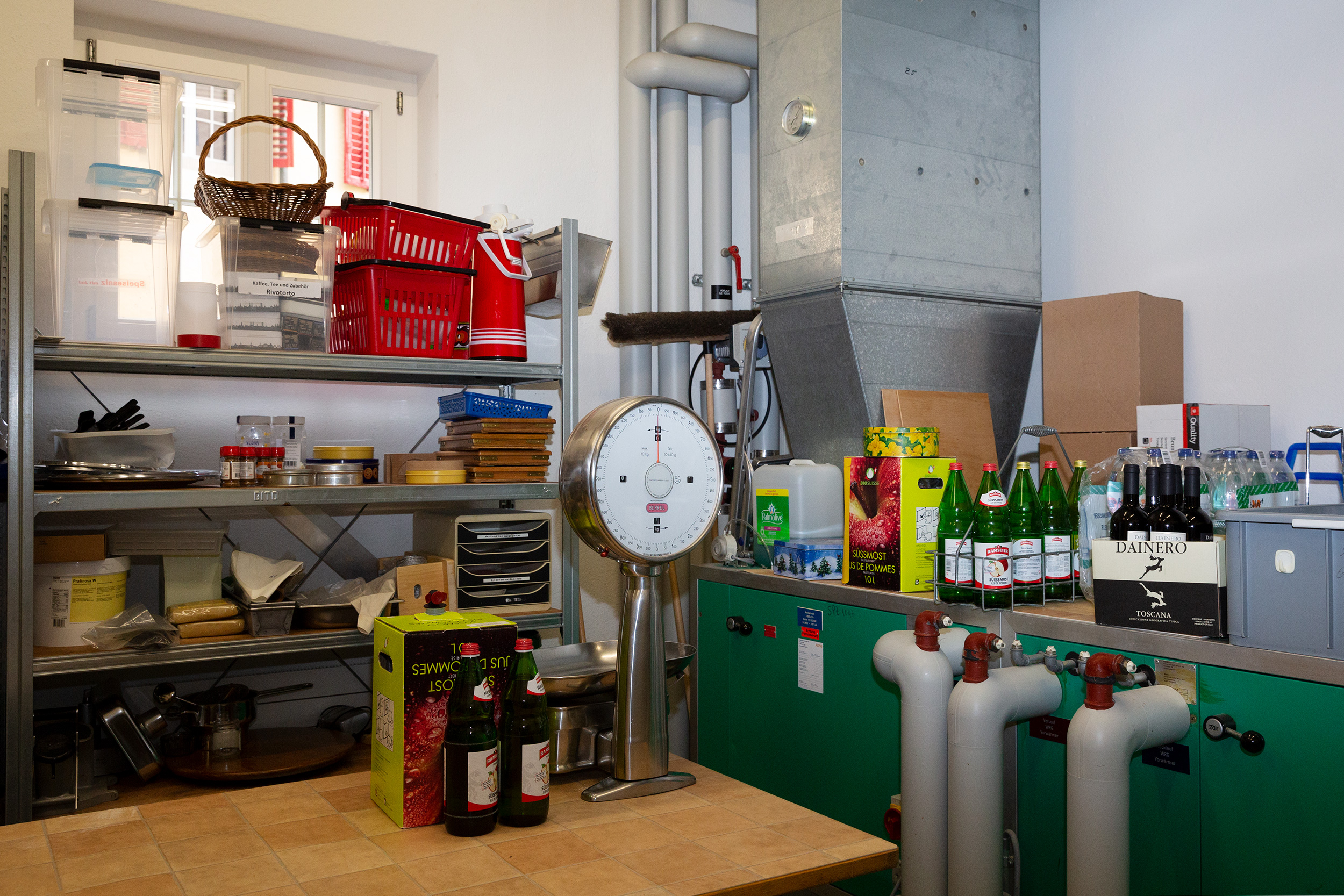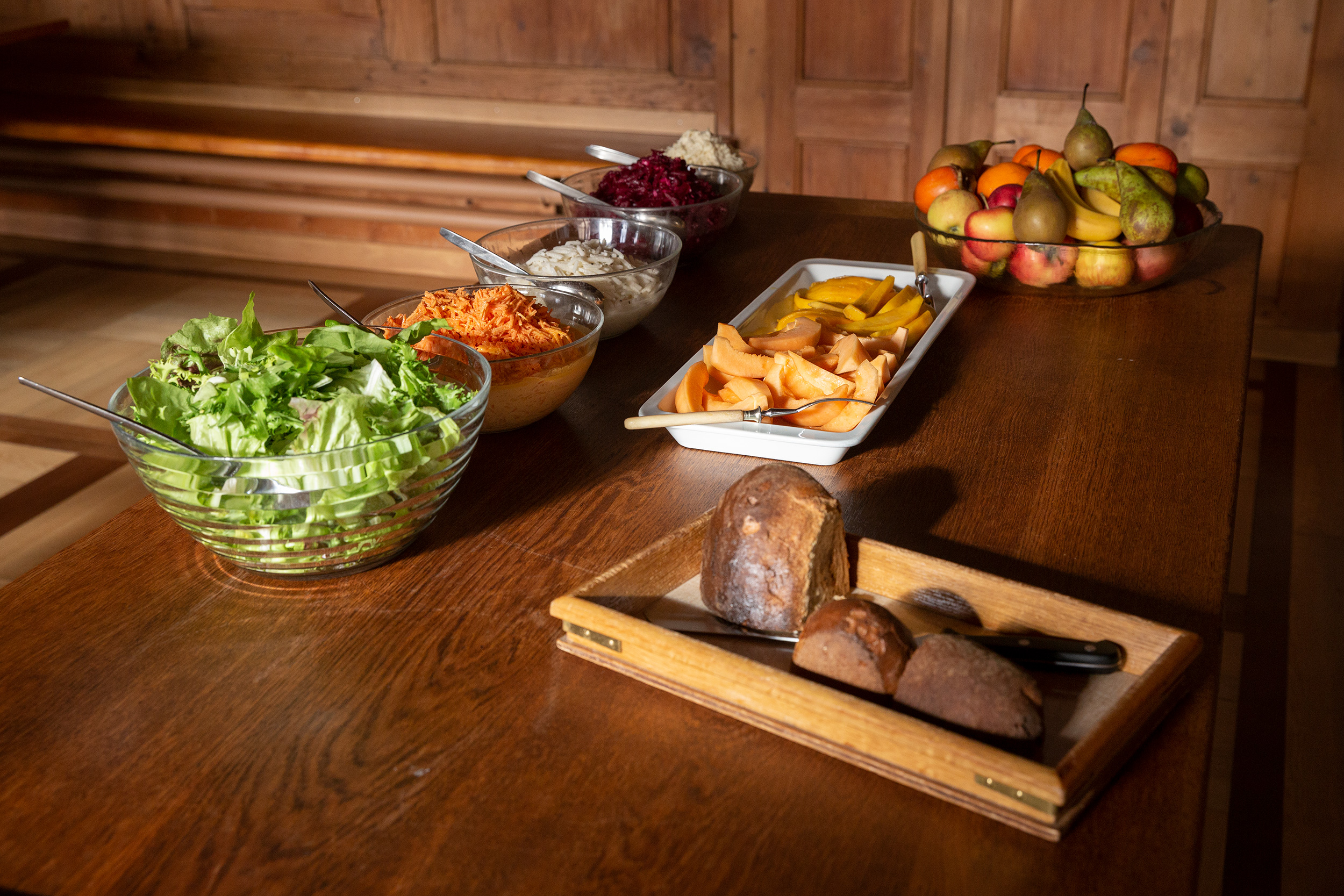RAINER BRENNER • 14.02.2019
A guest of the Capuchin friary Wesemlin
«We are a community of fate»
As a Capuchin friar, Brother Damian shares his life and possessions with his fellow brothers. However, he explains to us why this lifestyle has little to do with renunciation during our visit to the Lucerne friary in Wesemlin.
Brother Damian welcomes us directly next to the cloister, wearing a brown, floor-length tunic. «I’m only wearing this because of your visit», he explains in a broad eastern Swiss dialect and leads us through the cold corridors of the town’s friary. «Normally most of us don’t wear tunics, because they are pretty impractical and they haven’t been compulsory for a long time. I think of them more as a kind of traditional costume.»
Damian Keller entered the brotherhood at the age of 21 during the mid-1980s. «I spent the last few years of my schooling in a boarding school run by Capuchin friars and had an uncle, who belonged to the brotherhood. This type of life was therefore not completely alien to me». Already while he was at grammar school, Damian started to become interested in the life of Francis of Assisi. «I liked this radicalism with which Francis stood up for people. The commitment of the Capuchin friars to serve people also appealed to me.» During and after his period of training and his degree in theology, he lived in various monasteries and worked in different social institutions in and outside Switzerland – including in California.
Shared life, shared money
The friary in Wesemlin was founded in 1584 thanks to a donation from the councillor Kaspar Pfyffer. The building was continually expanded over the following centuries. In 1730 a new library was also added to the building, whose works have remained preserved until today and are among the most valuable treasures of the Capuchin friars, who are otherwise dependent on donations. In addition to donations and payments for religious services, the brotherhood’s main source of income is now the friary itself – the friars have rented out part of the friary to a doctor’s surgery.
The money covers the modest living costs of the 15 Capuchin friars in Wesemlin. «We are a commune – or perhaps more a kind of community of fate. None of us has much private space or many belongings. Whatever any of us earn individually is for everyone’s benefit.» But renunciation is not something Brother Damian really sees in his lifestyle. «I don’t know anything different and don’t need any more to live. It might be slightly more difficult for some of the other brothers, who joined the order later and were previously used to a completely different lifestyle.»
Essential private space
Every brother has a small bedroom with a shower and WC in the Wesemlin friary as well as their own study. «It’s essential to have your own four walls as somewhere to retreat to» – Brother Damian will therefore not share his bedroom as the minimum of his private space with us nor anyone else.
The day starts at seven in the morning in the Wesemlin friary with communal prayers and meditation. After that everyone goes about their own work – some friars work on social projects, others prepare their pastoral services.
Life in the friary and detective stories
The day starts at seven in the morning in the Wesemlin friary with communal prayers and meditation. After that everyone goes about their own work – some friars work on social projects, others prepare their pastoral services. As the guardian, Brother Damian is more the less the master of the friary: «I spend most of my time in front of the computer or in meetings. I coordinate and organise everything associated with Wesemlin friary.» At first glance Brother Damian’s office doesn’t look very different from other workspaces: There’s a screen, computer and laptop on the table, next to them are various files, a mobile phone, folders – and two Netflix vouchers. «I’m a real fan of exciting series!», admits Damian. «Hardly an evening goes by without me watching 1-2 episodes of a series or reading a detective story. My favourites are Nordic and German authors.»
«After the evening meal I usually structure my evening myself». Brother Damian doesn’t think much of social control. «We are all adults. Everyone has to make their own decisions about which liabilities they want to enter into towards society.» However, the brothers are also not immune to conflicts (although they don’t actually argue). Like in any community, there are sometimes differences in the friary: «One gets on better with some brothers than with others. And in many respects we also share very different opinions on certain subjects.» However, if living together doesn’t work at all or one longs for a new environment in one’s professional or private life, the Capuchin friars also have the option of moving to a different friary. In contrast to monks, Capuchin friars are not tied to an individual friary, but part of the overall Swiss and internationally associated brotherhood.
«We are all adults. Everyone has to make their own decisions about which liabilities they want to enter into towards society.»
Ahead of the times
The fact that this is purely a male household, is clear from the small details above all. «Perhaps we lack an eye for detail in our surroundings, but that also means we are free of any knick-knacks», says Brother Damian. «A lot of things are kept very plain and practical – but this also has its advantages when building work is being carried out.» The prayer room has a modern, reduced effect for example and is unexpectedly free of symbols. Also in the large dining room or in the library sparse aesthetics meet gentle renovation.
And this gentle renovation is not only a major subject with regard to building work. The large communal rooms such as the dining room, prayer room or kitchen bear witness to a time during which a large number of brothers were still resident here. «When I lived here for the first time at the end of the 1980s and beginning of the 1990s, there were still forty brothers here, but now there are not even half that number», states the guardian. The Capuchin friars are lacking the next generation of friars. This means that even in this relatively young friary, the average age is over 60 years.
«We are unquestionably a sign of the times», sums up Brother Damian. «It might be the case that at some time the order runs out of members.» However, Damian would not describe the life of the Capuchin friars as old-fashioned. On the contrary: «In many respects we are even ahead of the trends. Topics such as sustainability, living with optimal use of resources, social work, a multi-generational household and similar have been experienced by us for centuries now rather than being discussed. We have already been practising car-sharing for many decades before the term mobility was coined.»
«In many respects we are even ahead of the trends. Topics such as sustainability, living with optimal use of resources, social work, a multi-generational household and similar have been experienced by us for centuries now rather than being discussed. We have already been practising car-sharing for many decades before the term mobility was coined.»
Togetherness counts
After almost two hours of our conversation it is clear that even Brother Damian likes to have an occasional lie-in. Even Capuchin friars need a change of scene and a holiday every now and then – in the case of Brother Damian he prefers to go to an alp in Liechtenstein. Even Capuchin friars can wear an Apple watch. And even Brother Damian gets worked up about trivialities sometimes – for example about the patronising sound of the dinner bell, which at that moment announces a meal of veal in a creamy sauce by its delicious smell. Where individuality ends and luxury begins, is continually being renegotiated here in the friary. However, in contrast to many other places, here one defines oneself not by the differences but by the commonalities.
Photography: Anne Morgenstern
